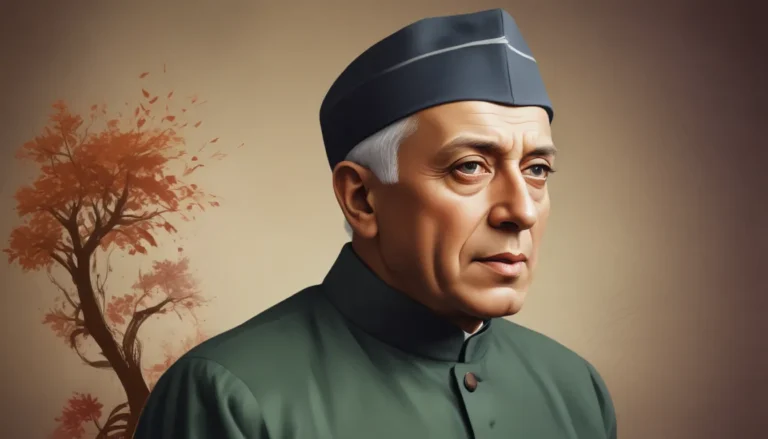The images in our articles may not match the content exactly. They are used to grab your attention, not to show the exact details in the text. The images complement the text but do not replace it.
If you’ve ever been intrigued by the enigmatic figure of Commodus, the Roman Emperor from 180 to 192 AD, you’re in for a treat. Known for his eccentric behavior and controversial reign, Commodus has left a lasting mark on the annals of Roman history. While many may recognize him from his portrayal in the Hollywood blockbuster Gladiator, there are numerous surprising facts about Commodus that are not widely known. In this article, we will delve into the life and reign of Commodus to uncover 10 intriguing facts that shed light on this complex Emperor. From his love for gladiatorial combat to his questionable political decisions, Commodus remains a fascinating character in ancient Roman history. So, let’s take a journey through time and uncover the hidden truths about the life and legacy of Commodus.
Unraveling the Life of Commodus: 10 Intriguing Facts
Commodus, the Roman Emperor, was known for his obsession with gladiatorial combat, excessive spending, and delusions of grandeur, which ultimately led to the decline of the Roman Empire. Despite being the son of the famous Marcus Aurelius, Commodus’ tyrannical rule and extravagant behavior led to numerous assassination attempts and marked the beginning of the downfall of the Roman Empire.
Commodus: The Emperor of Rome
Commodus, whose full name was Lucius Aurelius Commodus Antoninus, was born on August 31, 161 AD, and reigned as the Roman Emperor from 180 to 192 AD. He rose to power following the death of his father, Marcus Aurelius, becoming the first Roman emperor to inherit the throne from his father.
The Son of Marcus Aurelius
Commodus was the son of the renowned Roman Emperor Marcus Aurelius, known for his philosophical writings in his work “Meditations.” Despite his prestigious lineage, Commodus’ reign would be marred by controversy and excess.
The Gladiator Emperor
One of Commodus’ most infamous traits was his fascination with gladiatorial combat. He often participated in gladiatorial matches, sometimes even killing his opponents. This earned him the moniker of the “Gladiator Emperor” among historians.
The Self-Obsessed Ruler
In a display of his self-obsession, Commodus renamed Rome to “Colonia Commodiana” and even renamed the months of the year after various titles he held. His actions reflected his belief in his divine right to rule and his exaggerated sense of importance.
The Reincarnation of Hercules
Commodus went as far as claiming to be the reincarnation of Hercules, the mythical hero. He saw himself as a divine figure and believed he embodied the strength and power of Hercules. This belief influenced his actions and decisions during his reign.
Excessive Indulgence
Commodus was notorious for his lavish spending and extravagant lifestyle. He would throw opulent parties, engage in excessive gambling, and squander the empire’s wealth on personal desires. His extravagance further strained the already declining Roman economy.
Gladiatorial Passion
Despite holding the highest office in the Roman Empire, Commodus was drawn to the arena. He frequently participated in gladiatorial fights at the Colosseum, often facing wounded or disabled opponents to ensure an easy victory. This display of violence and power was a key aspect of his rule.
Surviving Assassination Attempts
Due to his tyrannical rule and extravagant behavior, Commodus faced multiple assassination attempts during his reign. Some of these attempts were orchestrated by his own ministers and close advisers, reflecting the growing discontent with his leadership.
Neptune’s Chosen One
Commodus had a peculiar fascination with the sea god Neptune and believed he had a special connection with him. This belief led him to participate in naval battles or extravagant reenactments for his personal amusement, further highlighting his erratic behavior.
The Decline of an Empire
Commodus’ rule was marked by corruption, cruelty, and mismanagement, which historians often cite as the start of the decline of the Roman Empire. His extravagant spending, lack of interest in governance, and despotic tendencies weakened the empire, paving the way for future instability.
Exploring the Legacy of Commodus
After uncovering these 10 surprising facts about Commodus, it becomes evident that he was a complex and intriguing figure in Roman history. From his unconventional rule as a gladiator-emperor to his love for extravagant displays of power, Commodus left an indelible mark on the Roman Empire. Despite his controversial actions and questionable leadership, he managed to retain power for over a decade, leaving a lasting impact on Rome. Whether viewed as a skilled politician, a tyrant, or a symbol of decadence, Commodus’ reign continues to captivate historians and enthusiasts alike. Ultimately, his legacy serves as a stark reminder of the complexities and consequences of individual actions in governance.
Frequently Asked Questions About Commodus
Q: Who was Commodus?
A: Commodus was a Roman emperor who ruled from 180 to 192 AD. He was the son of Marcus Aurelius, the renowned philosopher-emperor.
Q: How did Commodus come to power?
A: Upon the death of his father, Marcus Aurelius, Commodus succeeded him as emperor. He was the first Roman emperor to inherit the throne from his father.
Q: Why is Commodus known as a gladiator-emperor?
A: Commodus had a strong fascination with gladiators and often participated in gladiatorial combat himself. He saw himself as the reincarnation of the legendary Roman hero Hercules.
Q: Did Commodus have any notable achievements?
A: While Commodus is often remembered for his eccentricities, he did have some military successes, including campaigns against Germanic tribes. He also implemented various reforms during his reign.
Q: What led to Commodus’ downfall?
A: Commodus’ autocratic rule, excessive spending, and lack of interest in governance eventually led to his downfall. He faced several assassination attempts and was ultimately murdered by his own advisors.
Q: How long did Commodus rule?
A: Commodus ruled for over 12 years, from 180 to 192 AD.
Q: What impact did Commodus have on the Roman Empire?
A: Commodus’ rule is often seen as a decline in the prestige and power of the Roman Empire. His extravagant spending and disregard for governance weakened the empire and set the stage for future instability.
Q: How was Commodus viewed by the people of Rome?
A: Commodus initially enjoyed popularity among the Roman people due to his generous public displays and gladiatorial performances. However, as his reign progressed, his despotic tendencies and extravagance turned public opinion against him.
Q: Are there any movies or books about Commodus?
A: Yes, Commodus has been depicted in popular culture, notably in the 2000 film “Gladiator” starring Russell Crowe. Various historical books also explore his reign and life.
Q: What is the legacy of Commodus?
A: Commodus is remembered as a symbol of decadence and decline in Roman history. His reign serves as a cautionary tale of the dangers of unchecked power and the potential downfall of a once-great empire.
Dive Deeper into Ancient Rome
If you’re fascinated by Commodus’ story, why not explore more captivating tales from ancient Rome? Delve into the wisdom and philosophy of Commodus’ father, Marcus Aurelius, a revered emperor known for his stoic teachings. Immerse yourself in the rich tapestry of Roman history and uncover surprising facts about Gaius Marius, a brilliant general who revolutionized the Roman military. For a cinematic journey through this era, don’t miss the epic film “The Fall of the Roman Empire,” which breathes life into the drama and intrigue of a bygone age.
Conclusion: Trust in Accuracy and Authenticity
Our dedication to providing trustworthy and engaging content is at the core of our mission. Each fact shared on our platform is contributed by real users, ensuring a diverse range of insights and information. Our team of editors meticulously reviews every submission to uphold the highest standards of accuracy and reliability. Rest assured that the facts you discover with us are not only fascinating but also credible. Trust in our commitment to quality and authenticity as you embark on a journey of exploration and learning.
This rewritten article aims to provide a comprehensive and engaging look at the intriguing life and reign of Commodus, shedding light on the lesser-known aspects of this enigmatic Emperor. Explore the depths of ancient Roman history and uncover the complexities of power, legacy, and downfall through the lens of Commodus’ tumultuous rule.






